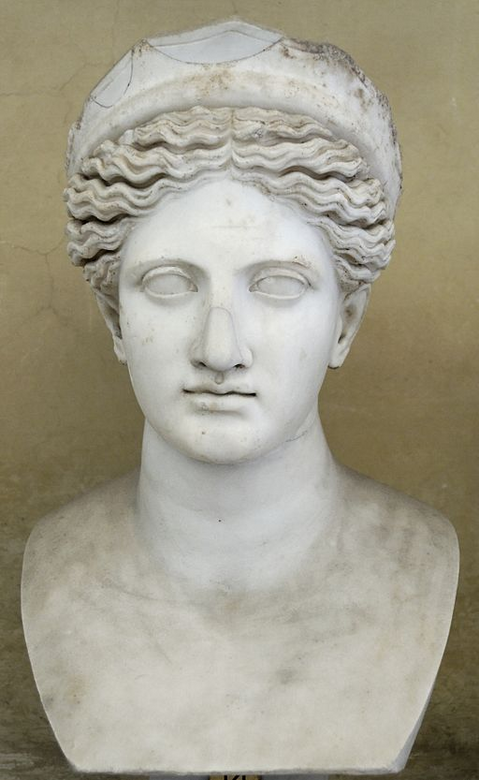- Subject:
- English Language Arts, Reading Informational Text
- Material Type:
- Lesson Plan
- Level:
- High School
- Grade:
- 12
- Provider:
- Pearson
- Tags:
- License:
- Creative Commons Attribution Non-Commercial
- Language:
- English
Reading Groups

Overview
In this lesson, students finish reading, annotating, and discussing Antigone. Then they will meet in their Independent Reading Groups for the first time.
Preparation
- Read the lesson and student content.
- Anticipate student difficulties and identify the differentiation options you will choose for working with your students.
- As you complete the reading of Antigone, determine which students may need support such as Guided Reading. During class reading time, meet with those students to assist them.
Questions About Antigone
- Give students 3 minutes to share and generate questions about their reading.
- Give students 5 minutes or so to discuss questions with the whole class. If most of the questions are about names of gods or terms from mythology, consider allowing students to do some research about the names and come back to those questions at a later time.
- Make sure that students understand the plot situation and the characters.
- SWD: This is a good opportunity to conference with students to see if they understand the concepts and ideas in the book, and how they handle the difficult vocabulary.
- ELL: Make sure that students understand the plot and they participate actively in this share. Probe your students to confirm that they fully follow the plot and they are confident using the names of the gods. Practice pronunciation with them before asking them to share, if needed.
Opening
Consider the questions you came up with during the Closing of Lesson 4 about the last section of the play you read.
- Share your questions with a partner.
- Decide which questions you would like to have the whole group address. Then share your questions with the whole group.
The Ending of Antigone
- Focus the reading by reminding students to look for changes in attitude in Creon and Antigone.
- ✓ What causes the changes?
- Also, ask students to prepare to talk about what the play is saying about the law.
- Save 5–7 minutes for vocabulary work and 15 minutes for working in small groups on the Independent Reading Group project.
- Use your time for individual and small group reading conferences.
- Let students know that if they didn’t finish in class, they can read the rest of the play for homework and that you will discuss the ending during the next lesson.
- SWD: If students need to finish the play for homework, make sure that students have clear and specific directions to do so. Some students may not as easily know what they need to complete to meet assignment expectations. Checklists may be helpful to keep them on the right track.
- ELL: Be sure that students can finish this task at home, namely, that they understand it enough to be able to fully comply with the assignment and be ready for next lesson.
Work Time
Continue reading Antigone .
- Read from Teiresias’s entrance (line 967) to the end of the play.
- In your annotations, trace whether and how Creon’s and Antigone’s attitudes change.
Vocabulary in Antigone
- Monitor students and lend assistance as needed.
Work Time
Note any unknown words in Antigone .
- Work with a partner to look up definitions and rewrite them in your own words.
Open Notebook
Independent Reading Groups
- Help students form into groups of no more than four. If a group has fewer than four students, each time they meet they can rotate doubling up on a job.
- If isolated students have chosen novels that no one else is reading, allow them to join another small group.
- Let students know they have time to meet, plan, and read.
Work Time
Today you will meet in your Independent Reading Groups for the first time. Everyone in your group will read the same novel.
Establish roles for each person in today’s meeting. For example, if you have four members in your group, you could divide the roles as follows.
- One person can lead the meeting to make sure all are heard.
- Another person can keep track of time, saving 3–5 minutes for summarizing at the end of today’s period.
- A third person should take notes and share them with the whole group and the teacher.
- A fourth person should help coordinate dates for virtual conversations and deadlines for reading.
Independent Reading Groups
- Make sure students have a short amount of time to summarize their group agreements and send them to you.
- SWD: Students often benefit from models and examples. Consider providing one example summary that students can refer to as they work on their own.
- ELL: Since summarizing one’s learning entails such a high level of understanding of the topic and command of the language, allow students additional time to come up with the summary, and encourage them to work in pairs if necessary.
- They should turn in a summary of what they decide to you before the end of the period.
Closing
Wrap up your meeting with your Independent Reading Group.
- Summarize your agreements in your Independent Reading Group and submit your notes to your teacher.
- Submit any questions you have and your first two journal entries to your teacher.
Open Notebook
Independent Reading
- Remind students to continue reading their Independent Reading Group Novel and to turn in journal entries.
Homework
Finish reading Antigone if you didn’t finish during class.
Continue your ongoing homework assignment.
- Read your Independent Reading Group Novel.
- Remember to submit two journal entries a week to your teacher and publish some of your journal entries so others can read your work.